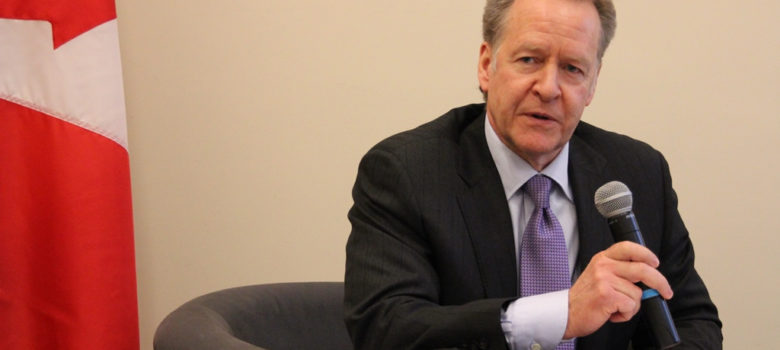Steve Verheul, Canada’s lead NAFTA negotiator, appeared before the Standing Committee on International Trade earlier this week to provide an update on the negotiations. In addition to confirming Canada’s commitment to a cultural exception (Verheul acknowledged that the U.S. “has not reacted positively”), Verheul was asked about the digital trade chapter. He indicated that there has been significant progress on issues such as online consumer protection and privacy. He also touched on two other issues: one a Canadian ask and the other a U.S. priority.
From a Canadian perspective, Verheul said that Canada wants a net neutrality provision included in NAFTA, noting:
We are including provisions such as online consumer protection to ensure that that is provided for and we also have provisions to provide personal information protection, which we feel is essential in this kind of trade, along with our position that we want to protect net neutrality when it comes to digital trade.
As I wrote last month, there is a need to address net neutrality in NAFTA since the U.S. decision to roll back protections could have a negative impact on Canadian businesses operating in the U.S. The NAFTA digital trade chapter is the ideal place for a net neutrality provision, though the rule should be stronger than the lightweight provision that was included in the TPP. This issue garnered particular attention during my appearance this week on net neutrality before the ETHI committee with MPs expressing interest (and some pessimism) about the likelihood of success.
While Canada is seeking NAFTA net neutrality protections, the U.S. is focused on establishing safe harbour protections for Internet intermediaries. Verheul indicated that the two countries disagree on the issue for the moment:
One of the outstanding issues remains a proposal put forward by the U.S. with respect to providing a safe harbour for Internet computer service providers. In Canada, we do not have that kind of protection from civil liability for those providers and we think that’s a domestic policy issue; that’s an issue for the courts rather than an issue for trade agreements. That’s one of the differences we have with the U.S. at this point in time.
I also recently wrote about the safe harbour issue, arguing that Canada would benefit from establishing a provision that maintains the need for responsible stewardship of online providers without overbroad monitoring or unwarranted takedowns.








The Safe Harbor provision is one of the few sane features of U.S. digital law. Why that escapes our government should be a huge concern for us.
The lack of protections from user-generated liabilities is probably keeping many sites from operating in Canada. (And driving them to reside under the American Surveillance Net.)
Pingback: Don’t rely on us to protect the open internet, warns FTC Commissioner – JeffPerales.com
Pingback: Canadian Negotiator Reaffirms Government Commitment to Network Neutrality
Pingback: Canadá jefe Negociador Confirma Gobierno de la Búsqueda de la Neutralidad de la Red de Salvaguardias en el TLCAN – High Tech Newz
Pingback: As the U.S. Retreats, Canada Doubles Down on Net Neutrality: "An Open Internet is Critical to Our Democracy" - Michael Geist
Pingback: As the U.S. Retreats, Canada Doubles Down on Win Neutrality: “An Originate Net is Extreme to Our Democracy” – Michael Geist – Startupon.net
Pingback: As the U.S. Retreats, Canada Doubles Down on Net Neutrality: “An Open Internet is Critical to Our Democracy” – BipMoDo